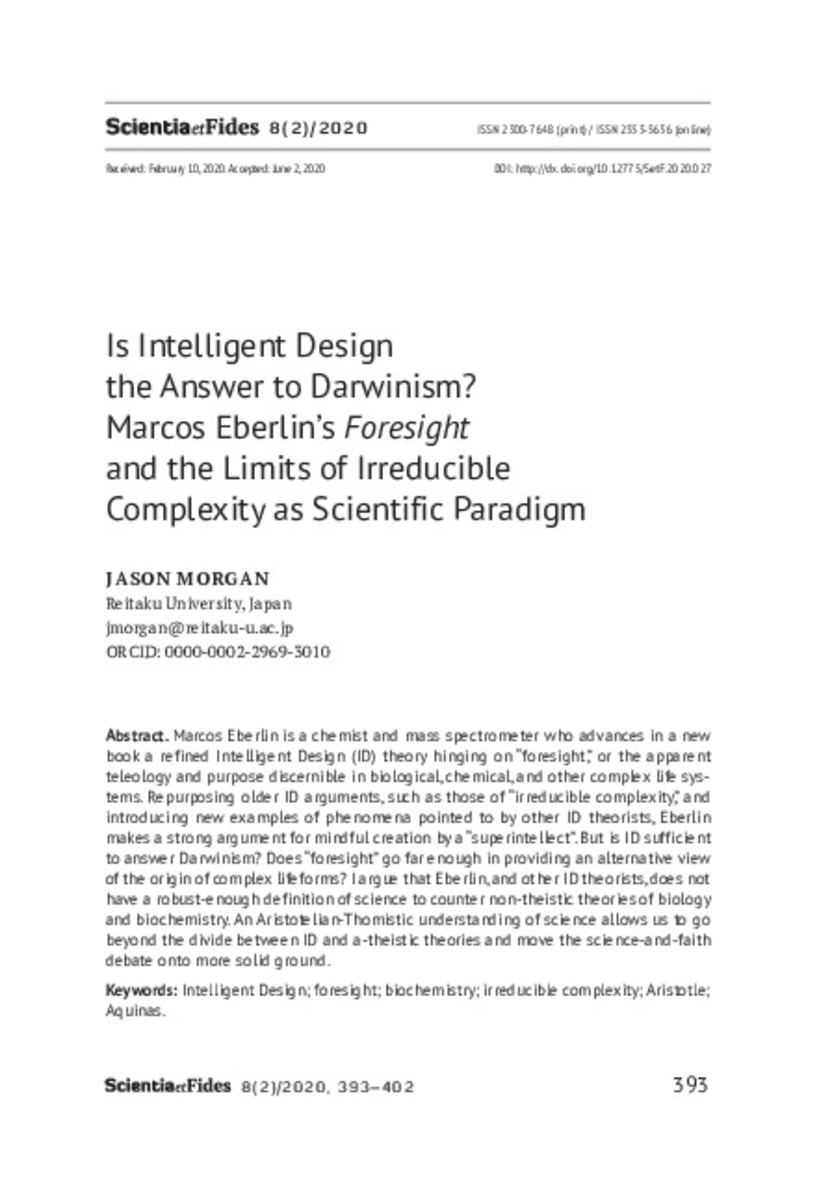Is Intelligent Design the Answer to Darwinism?Marcos Eberlin’s Foresightand the Limits of Irreducible Complexity as Scientific Paradigm
Palabras clave :
Intelligent Design
foresight
biochemistry
irreducible complexity
Aristotle
Aquinas
Fecha de publicación :
2020
Editorial :
Uniwersytet Mikołaja Kopernika
Cita:
Morgan, J. (Jason). "Is Intelligent Design the Answer to Darwinism?Marcos Eberlin’s Foresightand the Limits of Irreducible Complexity as Scientific Paradigm". Scientia et Fides. 8 (2), 2020, 393 - 402
Aparece en las colecciones:
Estadísticas e impacto
0 citas en

0 citas en

Los ítems de Dadun están protegidos por copyright, con todos los derechos reservados, a menos que se indique lo contrario.








